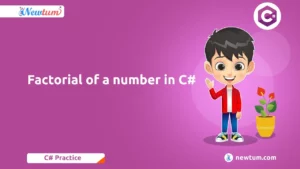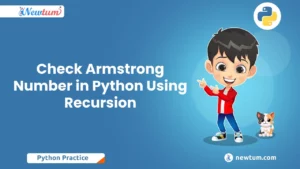So, you’ve probably heard that C++ is one of the foundational languages in the world of programming, right? Whether you’re considering a career in software development or just flexing your coding muscles, you might find yourself wondering: “How long does it take to learn C++?” Learning any new skill can seem daunting, but the journey of understanding and mastering C++ can be exciting and rewarding. In this blog, we’ll break it all down for you—what affects learning time, practical tips, and how you can apply C++ in the real world. Ready to dive in? Let’s get started!
Factors Influencing Learning Time
The time required to learn C++ varies depending on the following factors:
1. Previous Programming Knowledge:
If you have prior experience with programming languages like C or Java, learning C++ will be faster, as many concepts overlap. Beginners, however, may need more time to grasp the fundamentals.
2. Daily Practice and Dedication:
Consistent practice is essential to mastering C++. Spending at least 1-2 hours daily on tutorials, coding exercises, and projects significantly accelerates the learning process. Irregular practice may delay progress.
3. Complexity of Projects and Goals:
Your learning speed depends on your goals:
- Basic Goals: Building simple programs or understanding syntax takes less time.
- Advanced Goals: Developing games, competitive programming, or mastering system-level programming requires a deeper understanding and longer commitment.
By assessing these factors and tailoring your approach, you can create a realistic timeline for mastering C++.
Learning Timelines for Different Levels
The time required to learn C++ depends on the depth of knowledge you aim to acquire. Below is an approximate timeline for different levels of expertise:
| Level | Topics Covered | Estimated Time | Description |
|---|---|---|---|
| Beginner | Syntax, data types, loops, functions, basic input/output | 2-3 months | Focus on understanding the core structure and writing simple programs. |
| Intermediate | Object-oriented programming (OOP), Standard Template Library (STL), file handling | 4-6 months | Learn to build more structured and reusable code using advanced C++ features. |
| Advanced | Memory management (pointers), multithreading, algorithms | 6+ months | Master complex programming concepts and techniques for high-performance tasks. |
Key Notes
- Beginner Level: This phase includes learning how to declare variables, use loops and conditionals, and define functions. It’s ideal for building a strong foundation.
- Intermediate Level: You’ll dive deeper into OOP principles like inheritance and polymorphism, use STL for efficiency, and handle file operations. This is the phase where you start building functional applications.
- Advanced Level: In this phase, you’ll learn to optimize performance, handle low-level memory operations, and work on multithreaded programs for parallel processing.
Best Resources for Learning C++
Mastering C++ requires access to reliable resources tailored to your learning style. Here’s a curated list to guide your journey:
Online Courses
- Newtum: Comprehensive C++ tutorials with hands-on examples and real-world projects. Ideal for beginners and intermediate learners.
- Udemy: Offers affordable C++ courses, including “Beginning C++ Programming – From Beginner to Beyond.”
- Codecademy: Features interactive lessons for building strong programming fundamentals.
Blogs and Articles
- Newtum Blog: A complete guide to C++ covering topics like syntax, data types, STL, and advanced features. Perfect for learners looking for structured, step-by-step content.
Books
- C++ Primer (5th Edition): A detailed resource for beginners and experienced programmers, covering concepts and best practices.
- Effective Modern C++ by Scott Meyers: Focuses on advanced features introduced in C++11 and C++14.
Coding Practice Platforms
- LeetCode: Ideal for solving algorithmic challenges and learning C++ in a competitive environment.
- HackerRank: Offers problem-solving exercises to improve your coding skills in C++.
- Codeforces: Perfect for competitive programming enthusiasts to apply C++ in real-time contests.
Interactive Tools
- Newtum C++ Compiler: A user-friendly tool designed to write, compile, and test C++ code directly online. It simplifies debugging and enhances learning efficiency.
By leveraging these resources, you can steadily progress from mastering the basics to becoming proficient in advanced C++ programming.
Tips to Speed Up Learning C++
Accelerating your journey in learning C++ requires a strategic approach. Here are actionable tips to make your learning process efficient:
Set Clear Goals
- Identify your purpose for learning C++, whether it’s for system programming, game development, or competitive programming.
- Focus on topics relevant to your goals; for example, learn Object-Oriented Programming (OOP) for software development and STL for competitive coding.
Practice Daily
- Consistency is key. Dedicate at least 1-2 hours daily to coding.
- Start with simple programs like calculating the factorial of a number, then progress to advanced projects like creating a mini-game.
- Use platforms like HackerRank or Codeforces to challenge your problem-solving skills.
Build Projects
- Apply what you learn by building projects. For example:
- A calculator app for beginners.
- A file-handling system for intermediate learners.
- A multithreaded application for advanced users.
Join Coding Communities
- Participate in forums like Reddit’s r/Cplusplus or Stack Overflow to ask questions and solve problems collaboratively.
- Join C++ groups on platforms like Discord or Slack for guidance and mentorship.
By combining structured learning with consistent practice and community involvement, you can significantly reduce the time it takes to master C++.
Experience seamless coding and instant execution with the Newtum C++ Compiler—your go-to tool for efficient C++ programming and learning!
Conclusion
In conclusion, the time it takes to learn C++ varies based on your dedication and prior knowledge. With resources like Newtum, you can accelerate the process. Keep practicing, stay curious, and join coding communities to boost your learning journey. Happy coding!
Edited and Compiled by
This blog was compiled and edited by Rasika Deshpande, who has over 4 years of experience in content creation. She’s passionate about helping beginners understand technical topics in a more interactive way.


